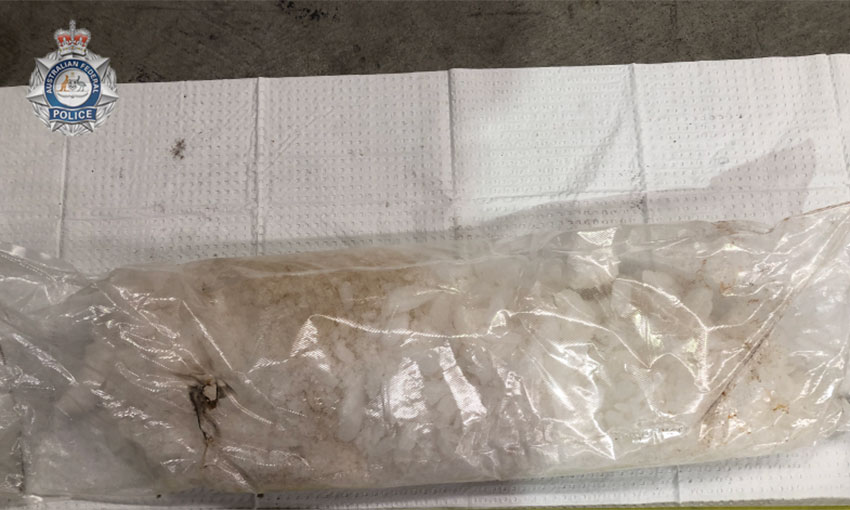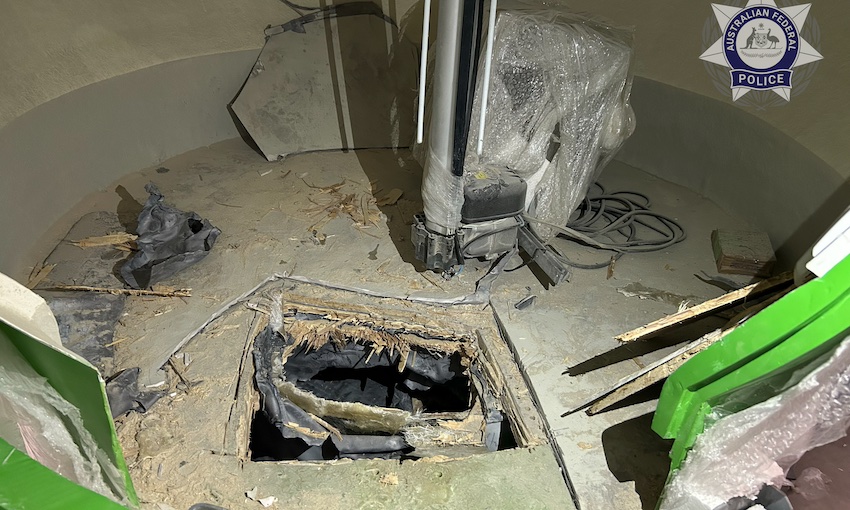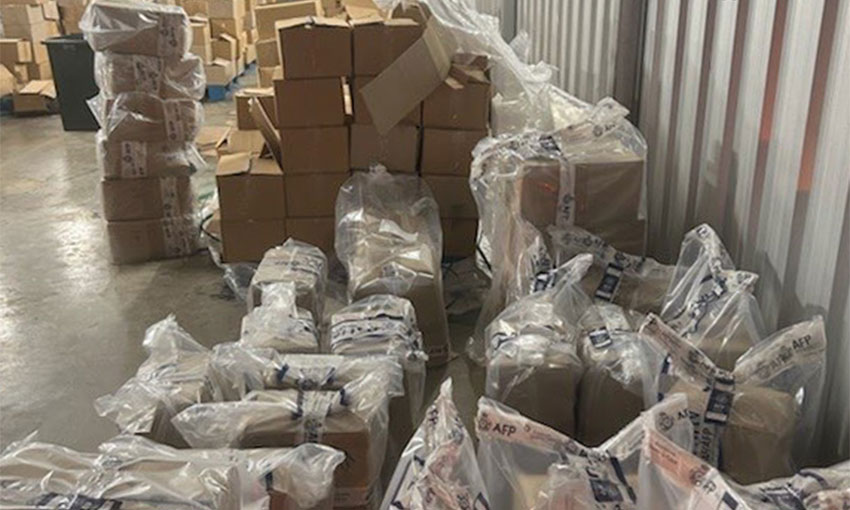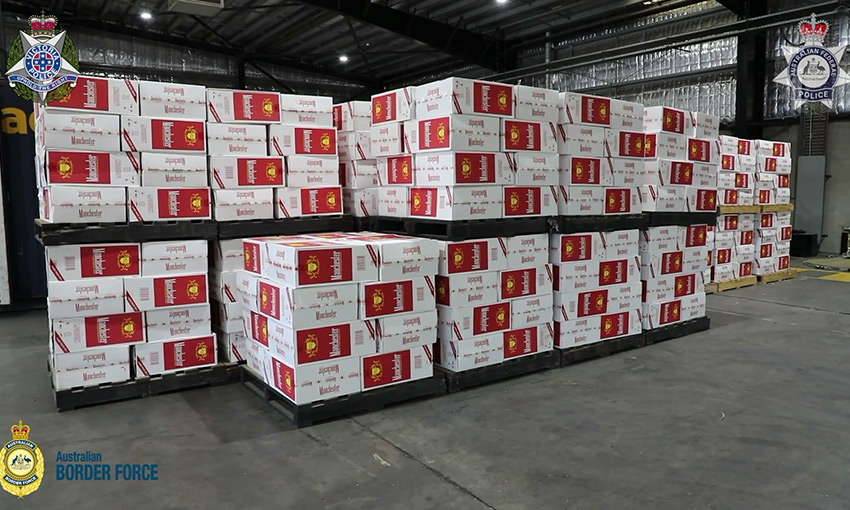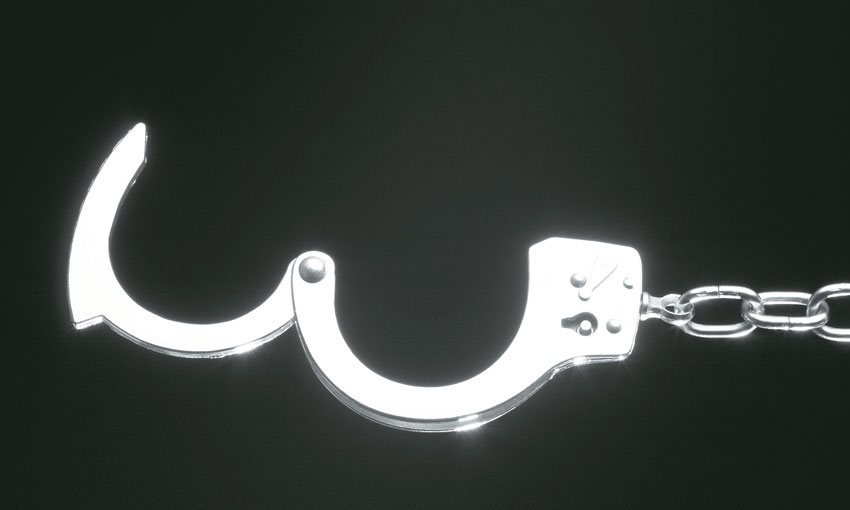THE NATIONAL Police of the Netherlands – acting on intelligence provided by the Australian Federal Police and the Belgian Judicial Federal Police – have arrested a 54-year-old man wanted in connection to an alleged plot to smuggle methamphetamine into Australia.
The Dutch national was arrested on Wednesday (5 October) in the Netherlands. The man is accused of being part of a transnational criminal syndicate that allegedly attempted to import 20 kilograms of methamphetamine into New South Wales in February.
The man was wanted on a European arrest warrant that was issued in Belgium for export of narcotics without a license, which carries a maximum penalty of up to five years’ imprisonment.
The National Police of the Netherlands located the man after the Belgian Judicial Federal Police advised them of the outstanding European arrest warrant, thanks to evidence gathered by them from the initial referral from the AFP.
The man is the third person arrested under Operation Chaupar, which began in February after ABF officers discovered 20 kilograms of methamphetamine concealed in diving equipment that arrived in Sydney via air cargo.
Two Sydney men were charged on 17 February with serious drug possession and import offences following the seizure.
The AFP alleges the Australia-based duo, a Campsie man, 53, and Rhodes man, 28, were part of the onshore arm of the transnational criminal syndicate and had attempted to take possession of the illicit drugs hidden in the diving tanks.
AFP officers executed a search warrant at the Campsie man’s property on 17 February. There they seized an air rifle, knives, a mobile phone, and small quantities of drugs, suspected to be methamphetamine and cannabis.
AFP officers, with the assistance of NSW Police Force Criminal Groups Squad investigators attached to the National Anti-Gangs Squad, executed a second search warrant at a property in Rhodes belonging to the 28-year-old man. They seized $17,000 in cash and multiple mobile phones.
The Australian arrests were a result of an investigation by the National Anti-Gangs Squad, the Australian Federal Police, the New South Wales Police Force and the Australian Taxation Office.
AFP Senior Officer, the Hague, Detective Superintendent Elias Petropoulos said the successful joint operation was another example of the strength of the AFP’s international law enforcement network and the willingness of its international partners to work seamlessly and collaboratively with the AFP.
“The AFP’s valuable and prompt intelligence sharing with our law enforcement partners around the world has once again stopped an alleged criminal syndicate in its tracks,” Det. Superintendent Petropoulos said.
“The AFP, together with its state, Commonwealth and international partners remains relentless in our mission to target, identify, disrupt and prosecute those attempting to import harmful illicit substances into our country.”
Director of the Federal Judicial Police of Limburg, Kris Vandepaer said, “For years now the prosecutor’s office and the Federal Police of Limburg/Belgium regard the fight against the production of synthetic drugs as one of their top priorities.
“A new this investigation was an example of good international police collaboration between the Australian Federal Police, the National Police of the Netherlands and the Belgian Federal Police.”
The Dutch National Police spokesperson said, “Combating the sale of synthetic drugs is a priority for the Dutch National Police. International cooperation, such as in this investigation with Australia and Belgium, is crucial”.
ABF Aviation Goods NSW Superintendent Mal Nimmo highlighted the unique skillsets of ABF officers when it comes to detecting threats at the border.
“The ABF’s expertise and high-level technology means that we will find the drugs, regardless of the method of concealment,” he said.
“Working together with the AFP and state law enforcement partners increases our reach so we can disrupt criminal activity like this one, to keep the community safe.”

